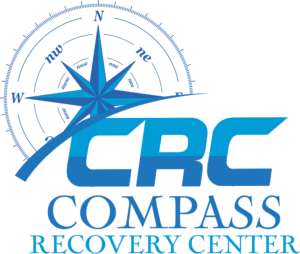In the journey of addiction recovery, finding inner peace and cultivating a sense of mindfulness can be transformative. When navigating the challenges of sobriety and work towards healing, incorporating mindfulness practices into your daily lives can provide invaluable support and guidance. Read on as we explore the concept of mindfulness and its profound benefits for those in recovery from addiction.
Understanding Mindfulness
At its core, mindfulness is the practice of being present and fully engaged in the present moment, without judgment or attachment to the past or future. It involves paying attention to thoughts, feelings, bodily sensations, and the surrounding environment with a sense of openness and curiosity. Mindfulness encourages acceptance of the present moment as it is, fostering a deep sense of awareness and inner peace.
Benefits of Mindfulness in Addiction Recovery
For those in recovery from addiction, incorporating mindfulness practices into their daily routine can offer a multitude of benefits:
Stress Reduction: Mindfulness techniques such as deep breathing, meditation, and body scans can help reduce stress and anxiety, providing individuals with healthier coping mechanisms to manage the challenges of recovery.
Emotional Regulation: Mindfulness fosters greater emotional awareness and regulation, allowing individuals to recognize and respond to their emotions in a constructive manner rather than turning to substances for relief.
Craving Management: By cultivating mindfulness, individuals can develop greater resilience to cravings and urges, learning to observe them without acting on them impulsively. This can significantly reduce the risk of relapse.
Improved Self-Awareness: Mindfulness practices encourage self-reflection and introspection, helping individuals gain a deeper understanding of themselves, their triggers, and their patterns of behavior. This self-awareness is crucial for sustained recovery.
Enhanced Well-Being: Engaging in mindfulness activities promotes overall well-being by fostering a greater sense of inner peace, contentment, and connection to oneself and others.
Reduced Rumination: Mindfulness teaches people to observe their thoughts without getting caught up in them, reducing rumination and negative self-talk that can undermine recovery efforts.
Increased Resilience: Mindfulness practices cultivate resilience by teaching individuals to approach life’s challenges with greater equanimity and acceptance, helping them bounce back from setbacks and setbacks.
Incorporating Mindfulness into Daily Life
Incorporating mindfulness into daily life doesn’t have to be complicated. Simple practices such as mindful breathing, mindful eating, and mindful walking can be integrated into daily routines to promote presence and awareness. Additionally, engaging in formal mindfulness practices such as meditation or yoga can provide deeper levels of relaxation and insight.
The Role of Compass Recovery
At Compass Recovery, we recognize the profound impact that mindfulness can have on the journey of addiction recovery. Our holistic approach to treatment incorporates mindfulness-based practices into our programs, providing individuals with the tools and support they need to cultivate inner peace, resilience, and well-being on their path to sobriety.
Through a combination of evidence-based therapies, individualized treatment plans, and compassionate care, we empower individuals to heal from addiction and create fulfilling lives free from substance dependence. If you or a loved one are struggling with addiction, we’re here to help. Contact Compass Recovery today to learn more about our comprehensive addiction treatment programs and how mindfulness can support your journey to recovery.
Compass Recovery Center, located in the heart of Prescott, Arizona, is a small, family-owned haven of healing that stands out in the world of addiction and mental health treatment. With over a decade of experience, we are dedicated to providing individualized care and support to help you navigate the challenging journey towards recovery.

